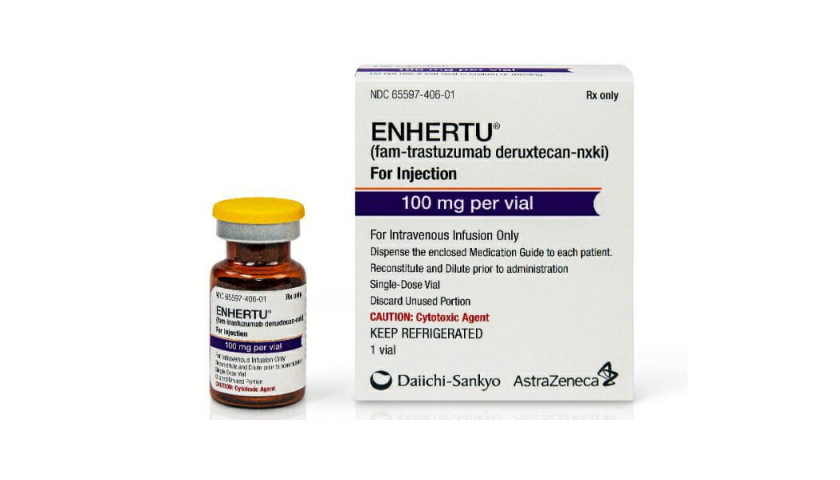Enhertu role in breast cancer confirmed, as Daiichi wins Seagen dispute

AstraZeneca and Daiichi Sankyo have the confirmatory trial data they were hoping for with Enhertu as a treatment for advanced, HER2-positive breast cancer in previously-treated patients.
The results of the DESTINY-Breast02 study showed improvements in progression-free survival and overall survival when Enhertu (trastuzumab deruxtecan) was compared to physician's choice of care in patients whose disease had progressed despite earlier treatment with Roche's Kadcyla (trastuzumab emtansine).
The results build on data from the DESTINY-Breast01 study, which underpinned the drug's approval in 2019 in patients who had received two or more anti-HER2-based regimens, and should serve as the confirmatory trial required to convert its registration from conditional to full approval.
That's important as the FDA and other regulators are increasingly enforcing the requirement for confirmatory studies after accelerated approvals, and have stripped some indications from cancer drugs in the last couple of years.
Only top-line results are available for now, but AZ and Daiichi Sankyo said the findings "confirm the efficacy and safety profile seen in DESTINY-Breast01 and are consistent with the results seen across our broader clinical programme in HER2-positive metastatic breast cancer."
Crucially, the number of cases of interstitial lung disease – a rare but serious side effect linked to Enhertu – was also in line with earlier studies.
Since being approved for later-line, HER2-positive advanced breast cancer, Enhertu has also had its label extended to include use as a second-line therapy, as well as for HER2-positive gastric cancer, non-small cell lung cancer, and HER2-low breast cancer.
Seagen dispute
Meanwhile, there was further good news for Daiichi Sankyo after it won an arbitration dispute with Seagen over intellectual property rights to antibody-drug conjugate (ADC) technology used in Enhertu.
The dispute arose from an agreement between Seagen and Daiichi Sankyo back in 2008 over the use of a linker technology used to connect the antibody and drug components in ADCs.
Seagen complained in 2019 that the linker used in Enhertu was a modification of its technology, so should still be covered by that earlier agreement.
The US biotech won a lawsuit on the same issue in April, winning $41.8 million in damages based on royalties that should have been paid on Enhertu sales in the US to that date.
In the latest ruling, the arbitrator "ruled in favour of Daiichi Sankyo, citing statute of limitations and disagreement with Seagen on the interpretation of the contract," according to a Seagen press release.
The ruling blocks Seagen's bid to collect royalties on ongoing Enhertu sales, which could have been worth hundreds of millions of dollars. The biotech – reportedly an acquisition target for Merck & Co – said that the decision "does not impact our existing business."











